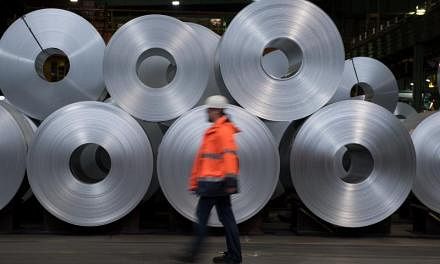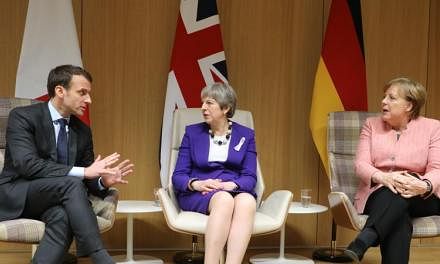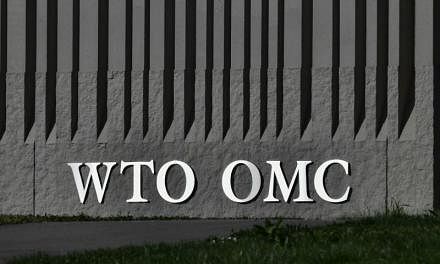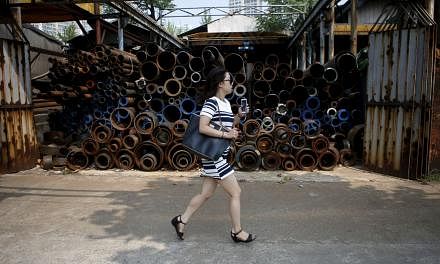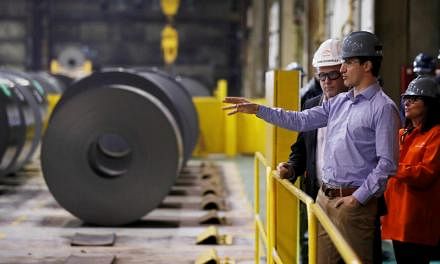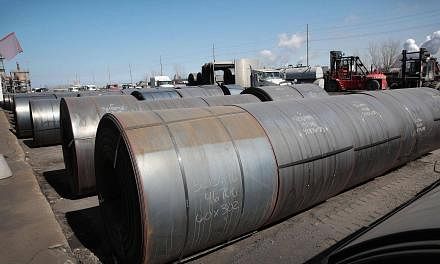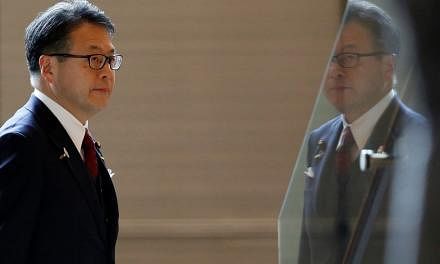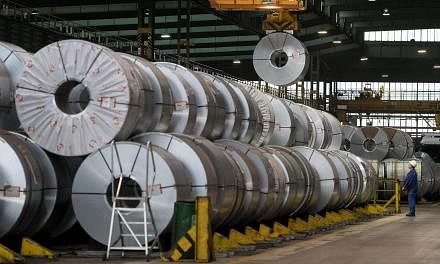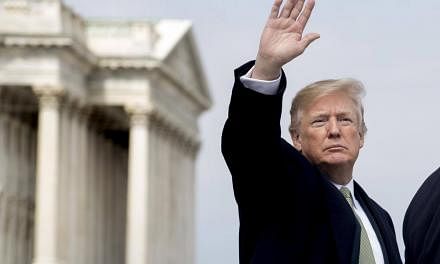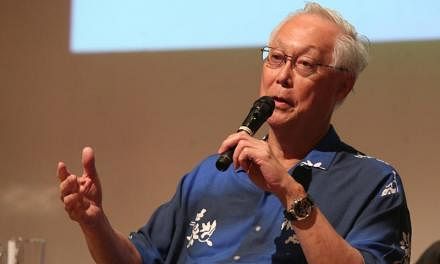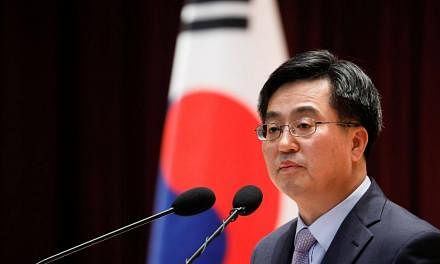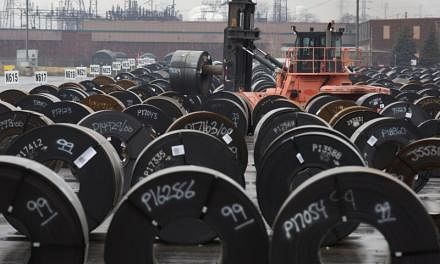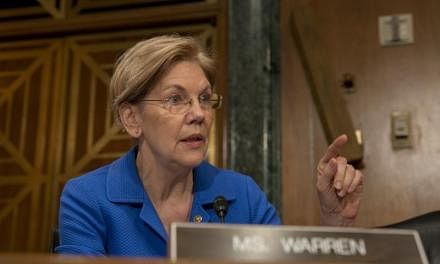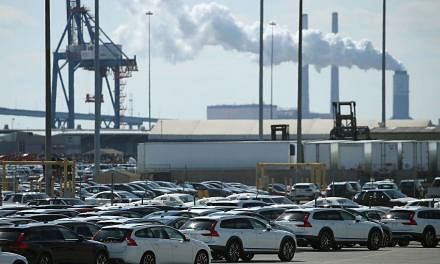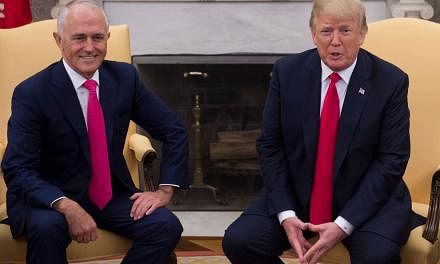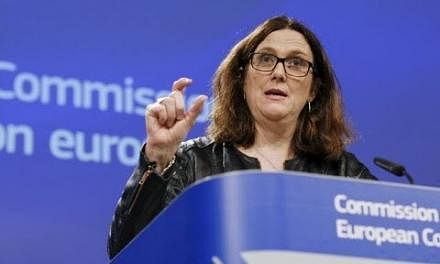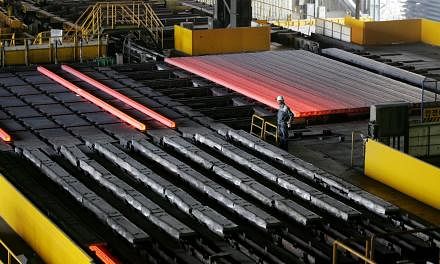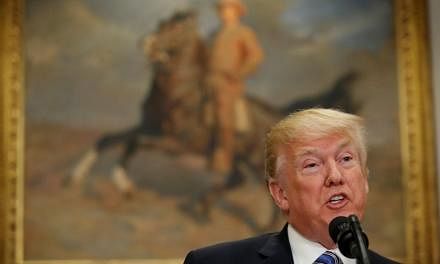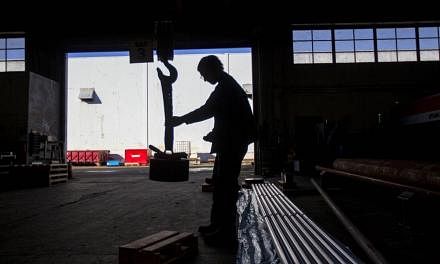WASHINGTON(AFP) - The resignation of senior White House economic adviser Gary Cohn on Tuesday (March 6) laid bare stark internal divides over President Donald Trump's aggressive policies on trade - particularly his proposal to put tariffs on steel and aluminium imports.
Here are the main players in the White House battle over trade policy:
Gary Cohn
Cohn, director of the National Economic Council and a representative of the Trump administration's Wall Street wing - announced on Tuesday (March 6) he would resign following brutal internal battles over the tariffs.
"It has been an honour to serve my country and enact pro-growth economic policies to benefit the American people," Cohn said in a statement issued after jittery stock markets had closed.
Cohn, the former president of Goldman Sachs who had been an interlocutor between the Trump administration and the business community, still plans to stay in his job for several weeks, a person briefed on his plans told Washington Post.
A former president of Goldman Sachs derided by Trump's far right supporters as "Globalist Gary", Cohn battled to the end against Trump's proposed tariffs - of 25 per cent on steel imports and 10 per cent on aluminium - reportedly planning a meeting between Trump and representatives from auto and can manufacturers and the oil industry.
Cohn was a major booster of the president's sweeping December tax cuts, but was out of synch with much of the president's America First message and political base of support.
His free trade position enjoys support among Republican leaders, however, including House Speaker Paul Ryan, who also is working to head off the tariffs.
Perhaps presaging Cohn's departure, Trump tweeted early on Tuesday that "people will always come & go" but the latest high-profile resignation was sure to feed impressions of White House disarray and was likely to shake up financial markets.
Peter Navarro, senior aide

One of the rare economists to support Trump's trade policies, Navarro was at Trump's side last week when he announced the new aluminium and steel tariffs before industry executives at the White House and with Cohn's coming departure will have even more influence on trade policy.
Trump, who surprised his own staff with the announcement, then doubled down by tweeting that he intends to impose "reciprocal taxes" on countries that impose duties on US exports.
Navarro gained prominence with his 2011 book with Greg Autry, Death By China, which reportedly drew the attention of Trump's son-in-law Jared Kushner.
Navarro argues that China reaps huge trade surpluses at US expense through illegal subsidies and currency manipulation - charges he also levels at Germany.
Navarro was put under Cohn's authority in a shakeup last year, but Trump has reportedly decided to promote the Harvard-trained economist to assistant to the president, marking the ascendancy of the trade hawks.
Republican Senator Orrin Hatch, chairman of the Senate Finance Committee, blames Navarro for Trump's increasingly protectionist stance, The Washington Post reported.
"I think it would be a tragedy if they continue on the course that was announced," Hatch said.
"I think he's had some very bad advice," he told reporters.
Wilbur Ross, Commerce Secretary
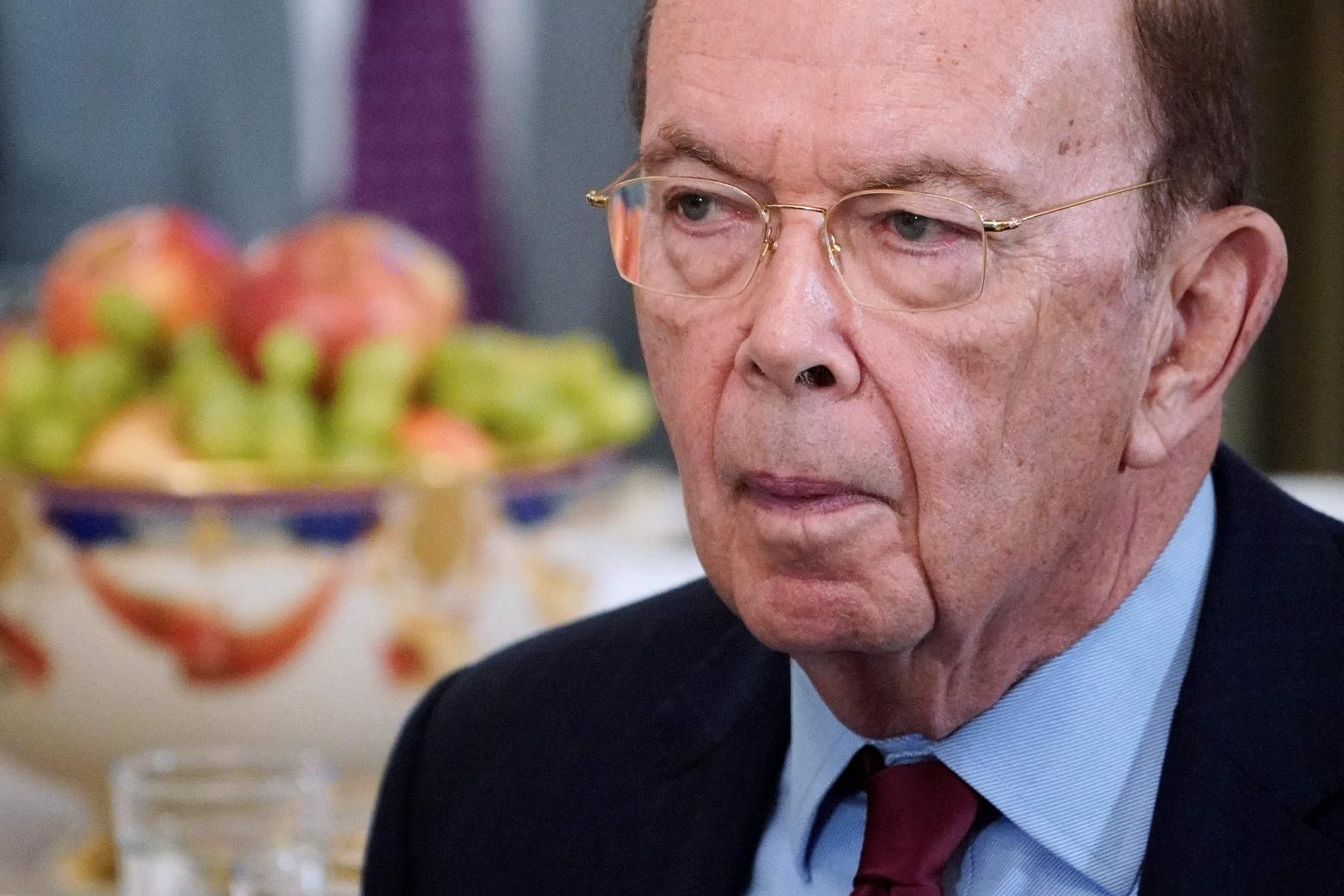
Unlike Trump's secretaries of state and defence, Commerce Secretary Wilbur Ross supports and has become the public face of the president's confrontational trade policy.
A former banker, Ross has also overseen a buildup of trade investigations into alleged dumping of products at artificially low prices and unfair subsides.
Ross brandished cans of Budweiser, Campbell's soup and Coca-Cola on television last week to argue that any price rises from the tariffs would be negligible. The three companies oppose the tariffs as do can manufacturers and other businesses that rely on metals.
"I think this is scare tactics by the people who want the status quo, who've given away jobs in this country, who've left us with this enormous trade deficit and one that's growing," Ross told CNBC.
Many economists disagree, warning that the a retaliatory spiral would have serious repercussions on the global economy.
Robert Lighthizer, US Trade Representative

A long-time Washington trade attorney and China critic, Lighthizer previously served as deputy US Trade Representative under President Ronald Reagan in the 1980s. He points to Reagan's moves to protect American industry with tariffs and quotas on steel, autos and semiconductors as a model.
Lighthizer is leading Trump's efforts to renegotiate NAFTA. The talks have at times been acrimonious, with Canadian and Mexican officials flatly rejecting Washington's demands including raising US content requirements for automobiles.
In a report in January, Lighthizer made the administration's case that China should not belong in the World Trade Organisation because it refuses to play by the trade body's rules.
He said "the global trading system is threatened by major economies who do not intend to open their markets to trade and participate fairly".

